
By David Young and Rebecca Black, PA
Confidence in policing in Northern Ireland has reached an all-time low, Stormont’s First Minister has warned.
Arlene Foster claimed public adherence to ongoing lockdown restrictions was at risk due to damaged confidence in law and order caused by a failure to prosecute Sinn Fein leaders who attended a huge republican funeral during the pandemic.
Mrs Foster reiterated her demand for Police Service of Northern Ireland (PSNI) Chief Constable Simon Byrne to quit over the episode, and suggested NI Director of Public Prosecutions Stephen Herron should also consider his position.
The DUP leader also refused to rule out withdrawing her party representatives from the PSNI’s oversight body – the NI Policing Board – if Mr Byrne continued in his job, while she warned Sinn Fein it would not be business as usual at Stormont.
“Confidence is at an all-time low in policing, not just within unionism,” she said.
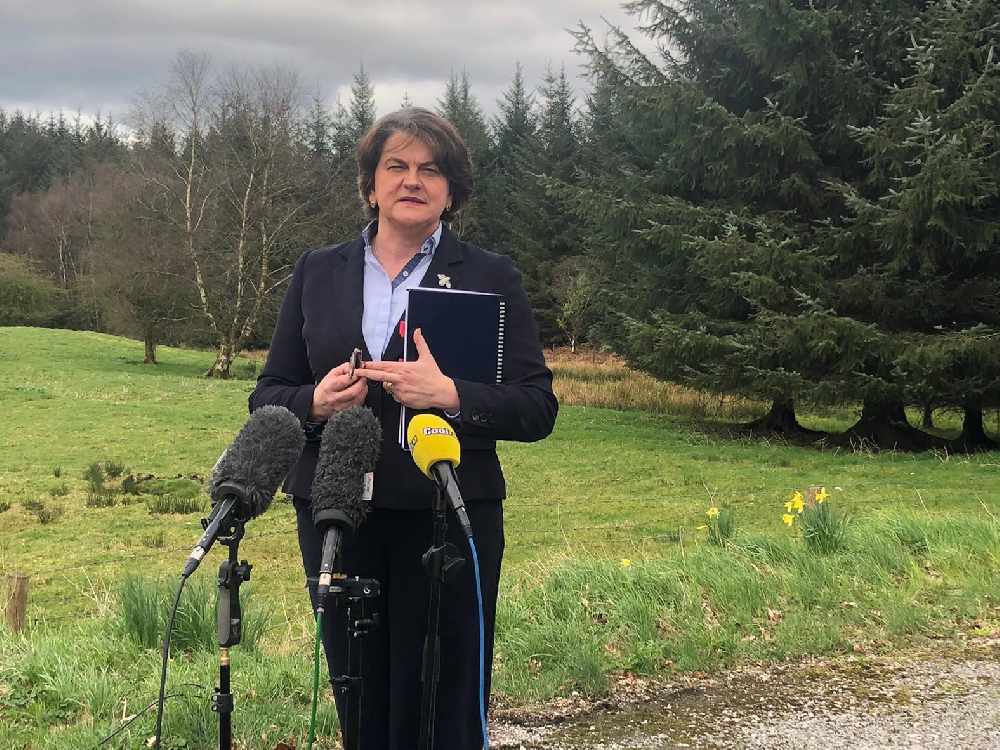
First Minister Arlene Foster addressing a press conference in Fermanagh yesterday following the PPS' decision not to prosecute anyone relating to Bobby Storey's funeral.
The First Minister’s remarks come ahead of Thursday’s emergency sitting of the Northern Ireland Assembly, which has been recalled from the Easter recess to debate an SDLP motion of censure against Sinn Fein.
Mr Byrne is due to face robust questioning at a meeting of the Policing Board on the same day.
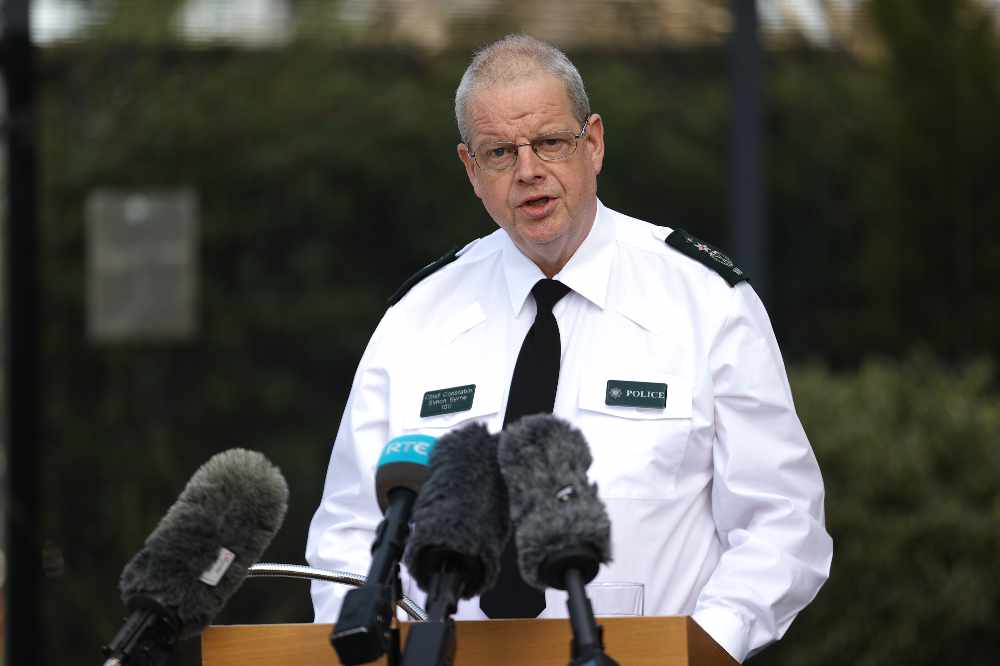
PSNI Chief Constable Simone Byrne
The DUP does not have time to table a formal motion of confidence in the chief constable at that meeting but, even if it did at a future meeting, it is unlikely to gain enough support from other board members to pass.
The escalating political row follows Tuesday’s announcement by the Public Prosecution Service that action would not be taken against 24 Sinn Fein members who were among an estimated 2,000 people who gathered for the funeral of former IRA leader Bobby Storey last June.
Sinn Fein deputy First Minister Michelle O’Neill, who was among the 24, has reiterated her apology for any damage that had been caused to public health messaging and has expressed determination to rebuild public trust.
The scenes in the west Belfast in June unfolded at a time when strict limitations on funerals were in place and led to claims that Sinn Fein had flouted rules it was responsible for creating at Stormont
Explaining why any prosecution was likely to fail, Mr Herron cited the repeatedly changing and inconsistent nature of Stormont’s Covid-19 health regulations and the fact police engaged with the organisers of the funeral around its planning.
Mrs Foster has branded as “perverse” the notion that the complexity of legislation is a reason not to prosecute law breakers.
In regard to the PSNI’s involvement with the funeral planners, the First Minister said it should be a resigning matter for all senior officers involved, particularly Mr Byrne.
In an interview with BBC Radio Ulster, Mrs Foster said: “If people want to ignore that there’s a crisis in policing, if Simon just thinks that he can buckle down and keep this job, continue to do what he’s doing, that of course is a matter for him but he will not have the support of the Democratic Unionist Party in doing that.
“We are the largest party within Northern Ireland and I think he needs to reflect on that this morning.”
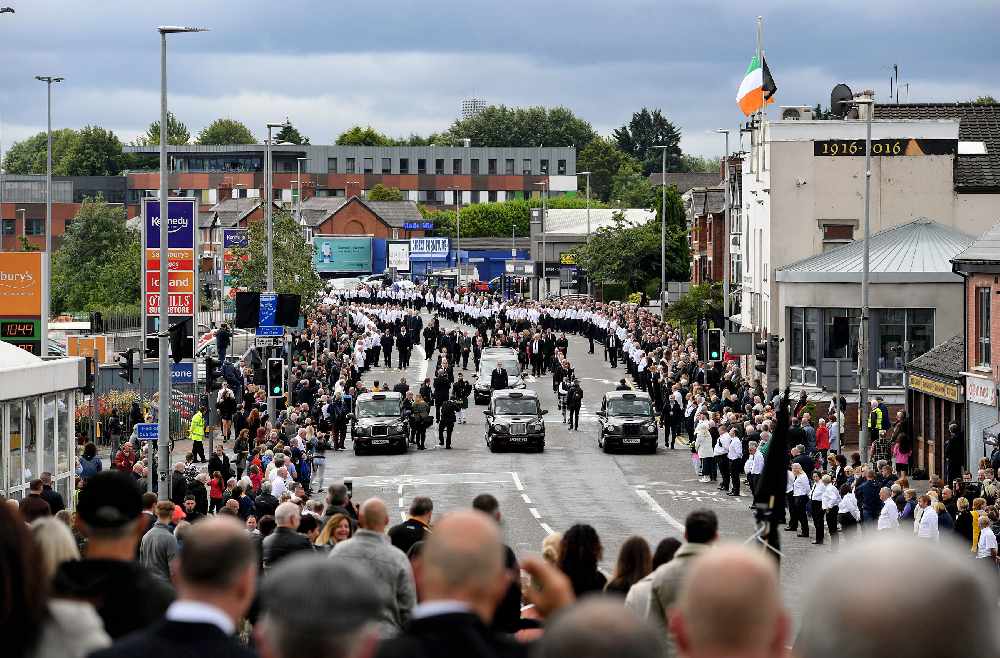
Large crowds gathered in west Belfast last June for the funeral of Bobby Storey despite covid regulations being in place prohibiting mass gatherings
Asked if the DUP was considering withdrawing from the Policing Board, Mrs Foster said: “We are continuing to discuss how we will take this forward.
“If Simon Byrne believes that he can dig in and stay as Chief Constable of the Police Service of Northern Ireland then we will have to look at other ways to deal with these issues.
“But I think it is folly for him to ignore, not only the largest unionist party, but the concerns of other unionist as well and of course the wider community across Northern Ireland.”
In regard to Mr Herron, Mrs Foster said: “Obviously he should look to his position as well.”
The DUP leader continued: “I think it is entirely perverse to say that the people, not only who make the law, but who know the policy intent behind the law were confused when they broke the law.
“That is an incredible statement to make from a justice organisation and I think it has huge consequences for the legal system here, because people will rightly say: ‘well, sorry, I was confused about the outworking of the law, so I shouldn’t be prosecuted.’
“Ignorance of the law is no defence and I think that the DPP in his decision, the Public Prosecution Service in their look at the evidence, have actually opened a Pandora’s box in relation to a whole range of issues. I am absolutely very concerned about where this will lead us.”
Mrs Foster has called for an independent review of the PPS decision and has also said Her Majesty’s Inspectorate of Constabulary should probe the police’s handling of the events around the funeral.
The DUP has also written to the PSNI’s complaints watchdog – the Police Ombudsman – to ask it to examine the episode.
In terms of the stability of the powersharing administration and relations with her Sinn Fein partners-in-government, Mrs Foster said: “I don’t think there’s any doubt that the relationship has been damaged yet again by the refusal of Sinn Fein to acknowledge that what they did was wrong.”
She insisted the PPS decision was “not the end of the matter” and rejected any suggestion things would “carry on as normal”.
“If people think that we just carry on as normal when one of the most fundamental breaches of what we were doing at that time should just be brushed on the carpet and forgotten about – that’s not going to happen,” she said.
On Wednesday, Mr Byrne again made clear he would not be resigning.
He said prior engagement with the organisers of funerals would be “normal practice” for officers.
“Indeed we would have been criticised had we not spoken to the organisers at an event like this where we assumed there could well be large numbers of people,” he told BBC Radio Ulster’s Stephen Nolan Show.
“The critical thing to remember here that when you look at the findings from the Director of Public Prosecutions, he is really clear that actually regardless of what we did or didn’t do, which we still stand behind, was the fact that on the day the law was confusing and inconsistent, and that inhibited his ability to bring a prosecution.”


 Police launch murder probe following ‘brutal and senseless’ death of woman
Police launch murder probe following ‘brutal and senseless’ death of woman
 More than 5,000 NI children set to spend Christmas in temporary accommodation
More than 5,000 NI children set to spend Christmas in temporary accommodation
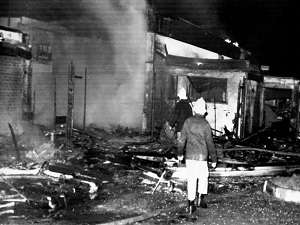 No evidence of police collusion in 1978 La Mon bombing
No evidence of police collusion in 1978 La Mon bombing
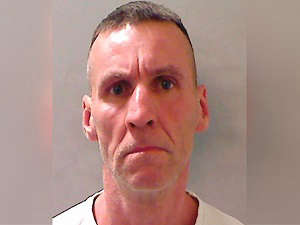 Sex offender who targeted girls online across the UK jailed for 27 years
Sex offender who targeted girls online across the UK jailed for 27 years
 Pre-trial rulings due in Bloody Sunday prosecution of Soldier F
Pre-trial rulings due in Bloody Sunday prosecution of Soldier F